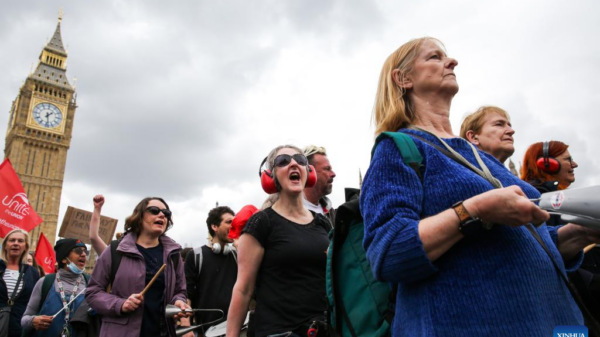WASHINGTON, Dec 29 – The global economy that was headed for an abyss at the start of 2009 now appears to be in recovery, but remains fragile and scarred by the worst crisis in decades.
The year began with major economies on the brink of disaster in what turned into the steepest global slump since the Great Depression, before a modest second-half comeback in most of the world.
US gross domestic product (GDP) sank at a horrific 6.4 annual percent pace in the first quarter, dragged down by a housing market collapse that hammered the financial sector and the rest of the economy. Jobs were being lost at a pace of 700,000 per month.
The eurozone saw a 2.5 percent GDP slide – a potential 10 percent annualized drop – in the first quarter that was the worst on record and offered the prospect of economic meltdown. Japan\’s economy was falling at a 14.2 percent rate.
"The world economy is facing a deep recession," the International Monetary Fund (IMF) warned in January.
A study by economists at the University of California and Trinity College of Dublin found that world trade fell faster and stock markets plunged further in the first year of this crisis than in 1929-30, and that the decline in manufacturing was as severe as the start of the Great Depression.
"At the same time, the response of monetary and fiscal policies, not just in the United States but globally, was quicker and stronger this time," the economists wrote.
Governments launched stimulus programs of hundreds of billions of dollars, and central bank cuts rates to record lows – near zero in the United States and Japan – while pumping trillions into the banking system to help restore credit flows.
Slowly, the efforts seem to have borne fruit. The main economies are growing, even if the pace is less than spectacular.
"To date, the results are mixed," C. Fred Bergsten, director of the Washington-based Peterson Institute for International Economics, said in a recent speech.
Bergsten said the interventions "appear to have arrested the precipitous downward slide and, in most cases, restored at least some positive momentum."
Nariman Behravesh, chief economist at research firm IHS Global Insight, says central banks led by the Federal Reserve deserve credit for "unorthodox monetary policy" including so-called quantitative easing, or pumping more money into the financial system, averting a global depression.
"The difference between now and the Great Depression was that in the 1930s, the Fed allowed the money supply to shrink and wasn\’t aggressive enough," Behravesh said.
The US economy expanded at a 2.2 percent pace in the third quarter after four quarters of contraction. Japan grew at a more moderate 1.3 percent pace in July-September.
The 16-nation eurozone saw 0.4 percent growth over the quarter, a sluggish annual pace, after five quarters of contraction.
China, which saw a slowdown but avoided recession, had third-quarter growth accelerating to 8.9 percent in an expansion built on stimulus cash and bank lending.
Globally, the IMF projected in October that growth would be 3.1 percent in 2010, after an estimated 1.1 percent global contraction in 2009, the worst since World War II.
Morgan Stanley economist Joachim Fels and associates project 4.0 percent global growth for 2010, but just 2.0 percent in the advanced economies of the Group of 10.
Fels said the economies will see "creditless recoveries" where banks are reluctant to lend and predicted "a jobless G10 recovery" with unemployment still high in the United States, Europe and Japan.
Carl Weinberg, chief economist of High Frequency Economics, was less optimistic, saying an ongoing credit crunch particularly gave him "grave doubts about the capacity of any of (the top industrialized nations) to grow much in 2010, if at all.
"We do not know of a single G7 economy that will be able to grow next year without substantial incremental fiscal stimulus," he said.
Others argue that the global economic problems, instead of being solved, have been shifted by the government rescues, with the exit strategy unclear.
"Toxic assets have basically been swept under the rug," says David Rosenberg, chief economist at Gluskin Sheff & Associates in Toronto.
"Whatever bad assets have been resolved have almost entirely been placed on the books of governments and central banks, which now have their own particular set of risks, as we have witnessed very recently in places like Dubai, Mexico, Spain, Greece, UK, the Baltic states, not to mention at the state and local government level in the United States."

































